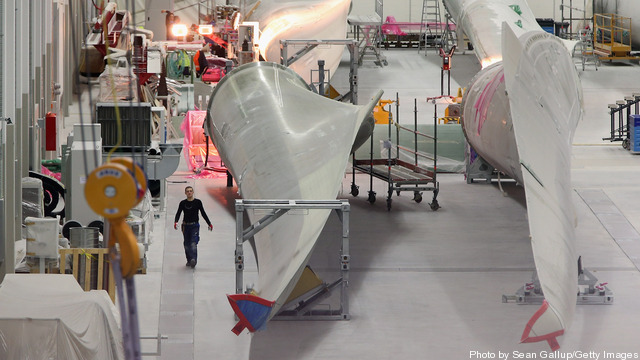
Last year was significant for the sustainable industries, marked by the rise of natural gas, the decline in renewables, and debates on energy policy issues surrounding the election. Despite the uncertainties of where the market is headed, we expect to see an uptick in investments and deals across the natural gas, energy efficiency, and smart grid sectors over the next year. In 2013, we predict that the energy efficiency will be active with the continued growth of IT, but the natural gas sector will be the center of major investor attention. In the coming months, we also believe that our country will move towards a formal, comprehensive energy policy.
2013 predictions for the Energy, Environment, and Applied Technology Sectors:
1. Where the Money’s At: Natural Gas
With a lower barrier to entry and more cost effective production than its renewable energy alternatives, natural gas has experienced rapid growth in the United States. This sector has the potential to drive a significant number of jobs for the US economy, especially those around energy research and development initiatives. Additionally, natural gas has been credited as a viable bridge to transitioning the international economy to sustainable energy, and ending the US’s dependence on foreign oil. As investments increase in 2013, Cascadia expects to see natural gas siphon investment dollars away from the renewable energy sector.
2. GT Meets IT: The Energy Efficiency Sector Will Remain Active
While many forms of renewable energies suffered from lack of investment in the past year, the energy efficiency sector stayed active. Since the development of the energy efficiency software is far less costly than infrastructure investments in clean technologies, like wind and solar, there’s a higher ROI for investors. Cascadia Capital believes the nexus of information technology and green technology initiatives will continue to grow, and that the industry will experience ongoing investment coupled with increased consolidation in the energy efficiency sector.
3. Smart Money’s on the Smart Grid
While smart grid investors have lost substantial dollars in recent years, the sector has continued to experience growth based on cutting edge technological advances, development of smart meters, increasing electricity generation prices, government incentives promoting green tech, and the development of transmission facilities to provide energy to remote areas. In fact, Research and Markets estimates the sector will grow to $57 billion by 2016. New solutions that make the grid smarter are beginning to gain serious traction with utility customers, and as a result, we expect that smart grid providers will seek investor capital to scale up their businesses. Cascadia expects that investors will have a renewed focus in the sector, which will result in capital pouring back into smart grid technologies.
4. Washington Gets Serious About an Energy Policy
All eyes are on the President to see how his reelection will impact the national energy policy. Hot button issues include the future of oil and natural gas production, the regulation of carbon emissions, climate change, and the support for renewable energy. With a Democratic President and Republican control in the House of Representatives there will certainly be significant debate; however Cascadia predicts that 2013 will be the year that a comprehensive national energy policy will come out of Washington. We expect this policy to extend beyond cap and trade to level the playing field for a variety of energy sources and providers, and enable oil and gas to coexist with renewables.
The overall rate of policy adjustments, technological adaptation, and strategic transactions that impact the energy, environment, and applied technology sectors have been staggering over the past several years. We expect this dynamic industry to be highlighted by investor attention towards the natural gas and energy efficiency sectors throughout this year.
Michael Butler, Chairman & CEO
The co-founder of Cascadia Capital, Michael Butler leads the firm and is an emerging thought leader in the New Energy Economy. His recent focus on sustainable technology has helped propel Cascadia into some of the most important transactions in this market.
Prior to co-founding Cascadia Capital, Butler served as a Managing Director at Lehman Brothers responsible for global equity sales and equity syndicate. He also served on the firm’s Equity Commitment Committee, Equity Syndicate Committee and Private Equity Commitment Committee. Before joining Lehman Brothers, Butler was a Principal with Morgan Stanley & Company, where he was responsible for divisional global product and risk management and was a member of the division’s Operating Committee. He has been involved in numerous equity financing transactions for both public and private companies.
Butler holds a B.A. in Political Science from the University of Washington and an M.B.A. in International Finance from the Wharton School of the University of Pennsylvania.
